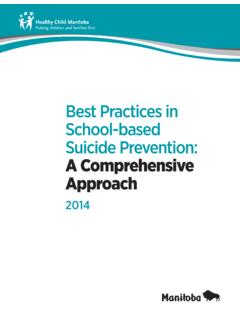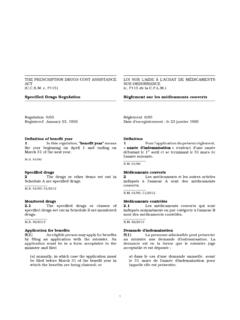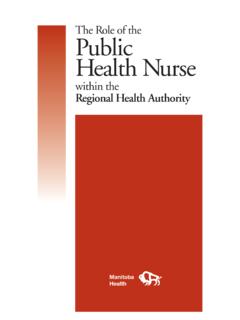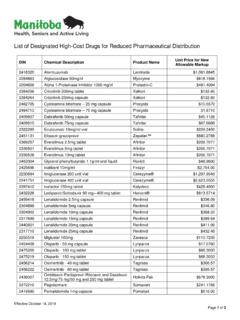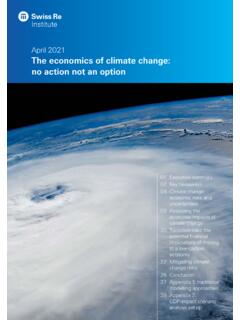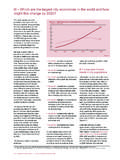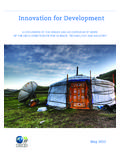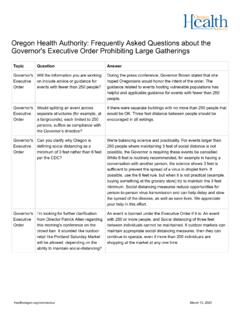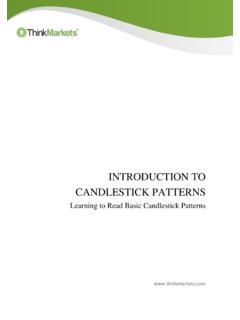Transcription of Impact of COVID-19 on Consumer Behaviour
1 MANITOBA ANALYTICS Impact of COVID-19 on Consumer Behaviour COVID-19 is Reshaping Consumer Behaviour The COVID-19 pandemic has profoundly changed the way we live and work, how and where we shop, what we value, and how we think about the future. While some of these changes are temporary, others will endure beyond this pandemic. As COVID-19 is reshaping industries and rapidly accelerating long-term underlying trends, it is more important than ever for businesses to understand Consumer Behaviour and have a complete view of the market trends. This short report provides an overview of the short and long-term impacts of COVID-19 on Consumer Behaviour .
2 Most of the data and information in this report comes from GlobalData. Consumer Concern about Global Outbreak of COVID-19 Since March 25, 2020, GlobalData has been conducting a weekly online Consumer survey in 11 countries (Australia, China, India, Brazil, Germany, Italy, Sweden, UK, South Africa, UAE and the USA) with a target sample size of 500 respondents per country, to track Consumer sentiment and shopping Behaviour during the COVID-19 pandemic. Survey results show that, although the percentage of consumers who are extremely concerned slightly decreased from 50 per cent in the first survey to 44 per cent in week nine of the survey, most consumers are highly concerned about the global COVID-19 outbreak.
3 Expectation on How the COVID-19 Outbreak Unfold over the Next Month Consumer expectations about how the COVID-19 outbreak unfolds over the next month is improving over time since the beginning of the first survey on March 25, 2020. The percentage of survey respondents expecting that the COVID-19 outbreak will get a lot worse dropped from 33 per cent at the beginning of the survey to 18 per cent on week nine. On the other hand, the percentage of respondents that expected the COVID-19 outbreak will get a bit better or get significantly better increased from 26 per cent in the Week 1 survey to 34 per cent in Week nine of the survey.
4 The monthly Consumer confidence index data released by the Conference Board of Canada also shows a similar trend. 2 The Consumer confidence index released by the Conference Board of Canada, which measures consumers levels of optimism regarding current economic conditions, indicates that Consumer confidence in Canada improved by points in May, after hitting a record low of points in April 2020. According to the Board, Canadians are still worried about their financial situation and future job prospects. The share of Canadians who felt pessimistic about their finance and future job prospects are per cent and per cent, respectively.
5 Impacts of COVID-19 on Consumer s Shopping Behaviour According to GloblaData s latest forecast, Consumer product sector revenue is expected to decline by $ billion ( per cent) in 2020, compared to baseline predictions. The data presented in the two figures above show that a large proportion of consumers remain concerned about the global outbreak of COVID-19 and how it might unfold in the future. Thus, concerns around physical health connected to COVID-19 and economic hardship related to lay-offs and job insecurity will continue to affect consumers shopping Behaviour and willingness to spend. The widespread lockdowns of the economy at the onset of the pandemic have prompted panic buying and led to a short-term spike in demand for long-life staple foods and freezer-safe products, such as meat cuts, canned foods and cereals.
6 GlobalData forecasts that many categories in the food sector will see gains against the 2020 baseline predictions, while alcoholic and soft drinks will experience the largest decline in sales as Consumer divert their expenditure from food services and discretionary items to essentials. The market value of alcoholic drinks in 2020 is expected to fall by per cent, compared to the baseline predictions. The Impact of COVID-19 on non-alcoholic drink is mixed. Water is projected to maintain an almost flat position in 2020, compared to the baseline, while carbonates, energy and sports drinks, and iced teas and coffees will experience a large decline of per cent in revenue, compared to the baseline predictions.
7 In addition, Consumer spending on fish and seafood, and snacks has significantly fallen in the first quarter of 2020, and will continue to fall. According to GlobalData predictions, overall, while the food sector will see a slight increase of per cent, alcoholic and non-alcoholic drinks will see a decline of per cent and per cent, respectively, against the 2020 predictions. GlobalData s market intelligence reveals that consumers are increasingly placing vital importance on value-for-money. Thus, as consumers purchases are currently centred on the most basic needs and people are shopping more consciously, premium and non-essential items are falling out of focus for customers.
8 To mitigate the social and economic impacts of COVID-19 , governments around the world have provided a record-level economic stimulus to households and businesses. While these economic stimuli have helped households and businesses to overcome financial hardships due to COVID-19 , most of these supports are expiring in a matter of weeks or months. Thus, like the other sectors of the economy, the 3 Contact us Go to and click on Markets ad Statistics Email us at Follow us on Twitter @MBGovAg Consumer sector s future performance will highly depend on how quickly the economy will re-employ those who were laid-off due to the pandemic.
9 According to the Conference Board of Canada, although most Canadians are slightly more optimistic about the future in May 2020, compared to April 2020, many still do not feel that this is the right time to make a major purchase. As consumers will remain cautious with their expenditure over the next months, businesses need to adapt their offerings and marketing strategy to survive through the pandemic. Impact of COVID-19 on Consumer Long-term Behaviour COVID-19 is changing consumers attitudes, behaviours , and purchasing habits, and many of these changes are likely to remain post-pandemic. As these changing Consumer needs and behaviours will transform industries future, they will pose both new challenges and opportunities for businesses.
10 Thus, understanding these changing Consumer behaviours is crucial for businesses when developing their business strategies to adapt to new and emerging Consumer trends. Businesses will need to understand how their customers are reacting to the pandemic, and develop tailored marketing strategies to meet the needs of each customer group. According to GlobalData, some of the main new trends emerging following the COVID-19 pandemic include a dramatic shift toward e-commerce, increased shopping at one-stop-shop retailers, and acceleration in buy local and private label offerings. The desire to shop locally is being reflected in both the products consumers buy ( , locally sourced products) and the way consumers shop ( , supporting local and community stores).


